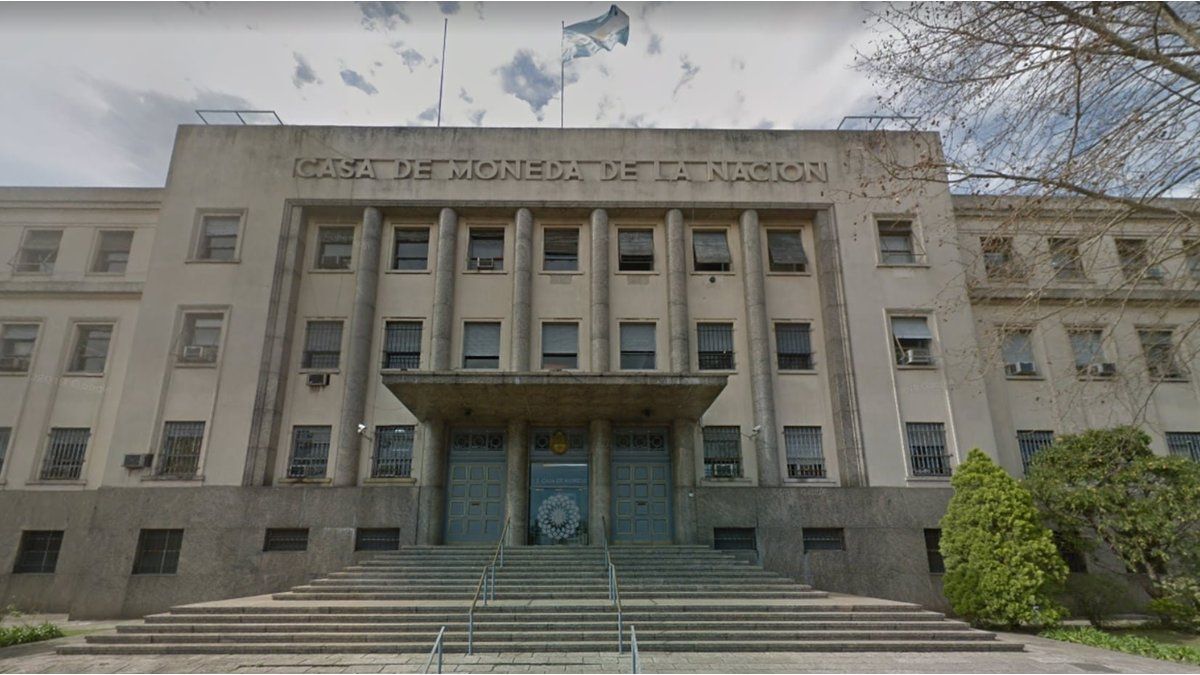Bundestag election
Merz wins, Scholz on the ground: what the election result means
Copy the current link
Add to the memorial list
Germany chose and there is a clear winner. Nevertheless, government formation could be difficult. But time is pushing.
Chancellor Olaf Scholz (SPD) failed and significantly inferior to his challenger Friedrich Merz (CDU/CSU): Germany is faced with a change of government almost four months after the traffic light coalition breaks. What the results of the Bundestag election mean:
Who is the big winner?
The Union with its Chancellor candidate Merz at the top has cut off significantly weaker than hoped. With 28.5 (projections at 11:10 p.m.) CDU/CSU are still the clear election winner and have the order for government formation. Merz now has the best chance of becoming the tenth Chancellor of the Federal Republic of Germany – if nothing goes wrong in the formation of government. “I know it won’t be easy,” he said after the first projections. However, the country cannot afford a long -winded formation of government: “The world out there is not waiting for us.”
Who is the clear loser?
Chancellor Scholz was unable to repeat the miracle of 2021. At that time he caught up with about 15 percentage points behind the Union in the election campaign and had reached the finish line with a narrow lead. This time the Social Democrats got stuck in the survey low. With 16.4 to 16.5 percent, they have reached their historical low in federal elections (so far 20.5 percent in 2017) and even the worst result in a national parliamentary election in 138 years.
Who will stand for this?
First and foremost Olaf Scholz as a candidate for chancellor. His days as head of government are numbered. The 66-year-old admitted the election defeat in a first reaction in the Willy Brandt House and took responsibility for it. He will “exercise until the last day,” he said. But he also made it clear that it is over: “Now it is to find the way to others how a government can be formed.” He himself would not appear as a negotiator of the SPD during coalition talks, he said in the “Berlin Round”.
Are there any other consequences in the SPD?
That is still unclear. Party leader Lars Klingbeil spoke out for a generation change in the SPD on Sunday – on his 47th birthday. “This result will require upheavals,” he said. What that means is open. At the moment, speculation is currently made by a withdrawal of the 63-year-old co-chair Saskia Esken.
What about the other traffic light parties?
The broken traffic light coalition received the receipt from the voter for three years of permanent dispute: 2021 SPD, Greens and FDP came together to 52 percent, now it is not even 33 percent. The FDP was still 11.4 percent in 2021 and is now probably leaving the Bundestag. The Greens sacks from 14.7 to 11.8 to 12.0 percent.
Who else won?
The AfD has doubled its result from 10.4 percent to 20.5 to 20.6 percent. Never before has a party, which was estimated to be right -wing extremist, so strongly represented in the Bundestag. But nobody wants to coalition with her. Election winner Merz, who most recently achieved a migration decision in the Bundestag with the help of the AfD, is also striving for uniqueness. His cancellation was “final”, he confirmed before the election.
What changes through the result of the AfD?
The AfD has become the second strongest party in the election and, like 2017 to 2021, will again become the strongest opposition power in the Bundestag. This is not just a symbolic meaning. In the future, the AfD will first respond to government declarations and open the general debates to the household. She has not reached an important brand: it will provide less than a quarter of MPs in the Bundestag and can therefore not use committees of investigations solely or block changes in the Basic Law.
Who is the big surprise?
Many had already written off the left. After the successes of the BSW of Sahra Wagenknecht at the state level, their ex-party was given little chance in the Bundestag election. However, the left has made it possible to discuss the “brand wall” for the AfD and a clever campaign. With 8.6 to 8.7 percent, she is now in fifth place. The BSW, on the other hand, has to worry about moving into parliament. A government participation of the two parties is considered excluded anyway: for an alliance of the SPD, the Greens, the left and the BSW, it is not enough.
Which government coalitions are possible?
The big question is initially: does the Union come from government formation with just one coalition partner or does it need two to get a majority? According to the projections, this is initially unclear – especially because on the election evening it remains open for a long time whether the BSW will come to the Bundestag.
Who would Merz prefer to rule with?
The first choice for the Union and Merz would be a two all -round alliance with the SPD. The CSU wants to avoid a coalition with the Greens, but its boss Markus Söder does not exclude this. He does not want to specify Merz, but from the CSU’s point of view, it was very clear: “A government without the Greens is a better government”. It would probably not be possible mathematical, even if the FDP and BSW stay outside.
Do the Union and SPD fit together?
A sure -fire success would not. The SPD has been a man since its controversial AfD maneuver in the Bundestag as a man that cannot be trusted. However, you don’t want to drive it into the arms of the AfD. Very tough negotiations are pending in the key issues of economic policy and migration. Merz wants a real change of policy in both fields. However, the massively weakened SPD has a means of pressure: the basis will have to agree to the negotiation result at a party congress or a member vote. Party leader Klingbeil has already emphasized that the SPD can also take responsibility from the opposition.
What if there is no majority for a two all -round alliance?
Then there is only one option: a Kenya coalition of Union, SPD and Greens. Then in the opposition AfD, left and possibly the BSW – all of them no parties in the democratic center.
How long will government formation last?
Merz wants the government to be standing until Easter. It is 54 days until Maundy Thursday. This is feasible, but also ambitious. If a member vote occurs at the SPD, it is quite unrealistic.
How was it in previous elections?
The record time from the election to swearing in the cabinet is 23 days: Both Willy Brandt (SPD) 1969 and Helmut Kohl (CDU) in 1983 agreed with the FDP in this short time. In 2017, Angela Merkel (CDU), on the other hand, needed 171 days, almost half a year, until she was able to start her fourth and last term as Chancellor with a black and red government. The reason was the interim failure of the negotiations on a Jamaica coalition of CDU/CSU, Greens and FDP.
Why is the time pressure particularly large this time?
Because the world is being reorganized in a dramatic manner. While Germany is sorting, US President Donald Trump will soon negotiate with Russian President Vladimir Putin about the future of Ukraine. The EU stands helpless and disputed. And Germany has a chancellor on call. Also important domestic political decisions, for example to boost the economy, remain at least until April or May. Maybe even longer.
How does rule work in the transition period?
Scholz remains in office until a new government was sworn in. When the new Bundestag comes together for the first time, it is only a managing chancellor – without power. Scholz will continue to make international appointments, fly to peaks. But he can no longer make important decisions without consulting Merz.
What will become of Olaf Scholz after his chancellorship?
Before the election, Scholz clearly said that he would not belong to a government of a Chancellor Merz. However, his political career is probably not completely over. Scholz won his constituency in Potsdam, in this case he had declared that he wanted to stay in the Bundestag until the next election. “The highest office in which one can be elected directly in Germany is that of the MP in the German Bundestag,” he says.
What will become Robert Habeck?
According to the projections, the Greens’ participation in the federal government is only possible in a triple coalition. If such conversations would come, the Greens Chancellor’s candidate will negotiate. A ministerial office would be practically safe if successful. If the Greens go to the opposition, it is completely unclear what becomes from Habeck. The group chair is one of the few attractive offices that are still to be awarded. Here Annalena Baerbock has the much better cards and a second realo at the top will not accept the party left. Habeck’s withdrawal is also considered possible.
What will become of Christian Lindner?
The FDP boss ends his political career. “Now I miss out from active politics,” Lindner wrote on the X. platform that he is now devoting himself to the family – after all, his first child is on the move – and then strives for a job in the economy.
What will become of Sahra Wagenknecht?
The BSW founder has said several times: “The choice is of course also the decision about my political future.” Who is not in the Bundestag is “no longer a relevant factor in German politics”. If she withdraws at the five percent hurdle in a failure, it will also be difficult for the alliance Sahra Wagenknecht, which was only founded in 2024-even though the BSW sits in the European Parliament and in three state parliaments and also in the government in Thuringia and Brandenburg.
dpa
Source: Stern
I have been working in the news industry for over 6 years, first as a reporter and now as an editor. I have covered politics extensively, and my work has appeared in major newspapers and online news outlets around the world. In addition to my writing, I also contribute regularly to 24 Hours World.




